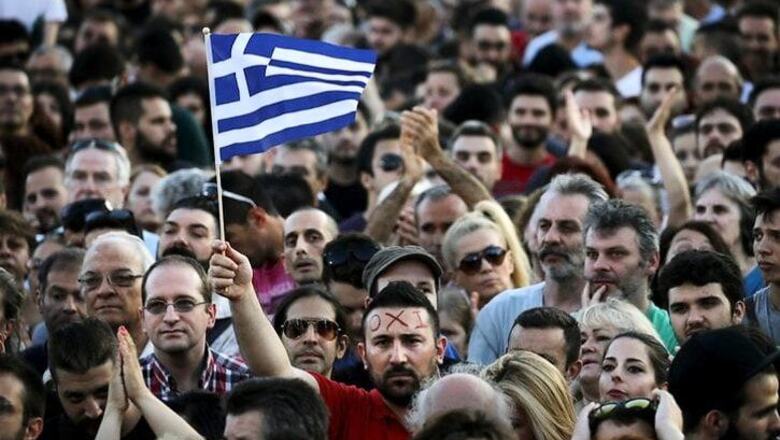
views
their 61-percent referendum victory, Greeks returned to the
reality of closed banks and queuing at ATMs for their daily
withdrawal limit of 60 euros.
Athens: Germany today dismissed Greece's bid to swiftly seal a new debt deal after the country delivered a resounding 'No' to more austerity, appearing little moved by the surprise resignation of the Greek finance minister.
Yanis Varoufakis, a firebrand who had infuriated European counterparts, announced he was resigning at Prime Minister
Alexis Tsipras's request in a move to placate creditors.
He was replaced by Euclid Tsakalotos, a much more discreet and calm junior foreign minister and economist who had been Greece's pointman in the negotiations with creditors.
Varoufakis's departure came a day after Greek voters overwhelmingly rejected more austerity required by international creditors under a bailout deal, heightening fears of a "Grexit".
But Berlin said the departure of Varoufakis did not change anything. "It is not about people but rather positions," Chancellor Angela Merkel's spokesman Steffen Seibert said, adding there was currently "no basis to enter into negotiations on a new
aid programme".
"It is up to Greece" if it wants to stay in the eurozone, he said. "We are waiting to see which proposals the Greek
government makes to its European partners."
A Greek government source said Tsipras and Merkel had spoken by phone and agreed Athens' proposals would be
presented at a hastily-called eurozone summit tomorrow.
Berlin's reluctance to reopen talks underlined a divide within Europe over the Greek crisis, with France, Italy and Spain adopting a more conciliatory tone.
That gap and the direction to take were likely to be discussed in a Paris meeting late Monday between Merkel and French President Francois Hollande.
Italian Prime Minister Matteo Renzi said on his Facebook page that Europe needed to "talk not only about austerity and
balance sheets but about growth, infrastructure", while Spain said it was open to new negotiations for a new Greek bailout.
And although last week Greece defaulted on a 1.5 billion euro repayment to the IMF, effectively cutting it off from
further financial assistance from the fund, IMF chief Christine Lagarde said it was "monitoring the situation" and
stood "ready to assist Greece if requested to do so".
As eurozone leaders weighed the cost of the vote, Tsipras also spoke to Russian President Vladimir Putin by telephone as
Athens scrambled to restore liquidity to its battered banking
system.
After jubilant celebrations by 'No' voters following their 61-percent referendum victory, Greeks returned to the
reality of closed banks and queuing at ATMs for their daily withdrawal limit of 60 euros.
Fears were growing that the cash machines could soon run out despite government-enforced caps on withdrawals, and
emergency funding was urgently needed from the European Central Bank (ECB) to stave off economic collapse.

















Comments
0 comment